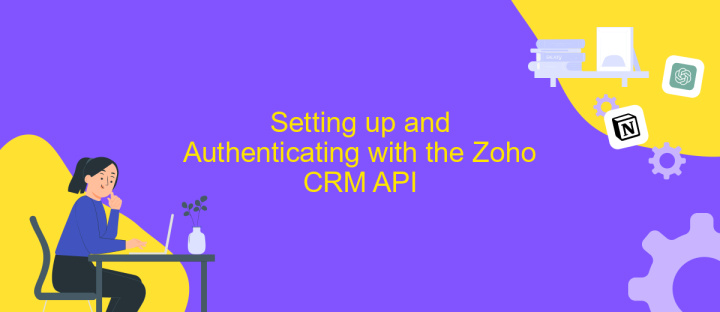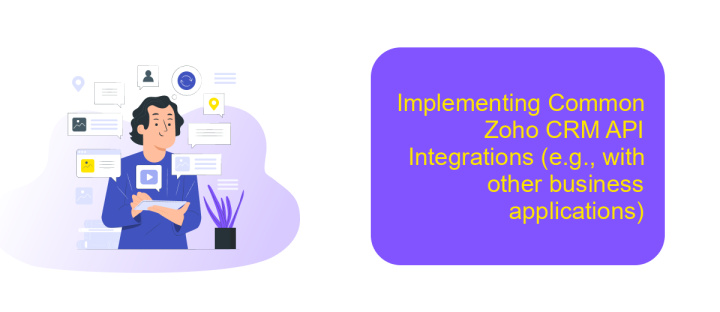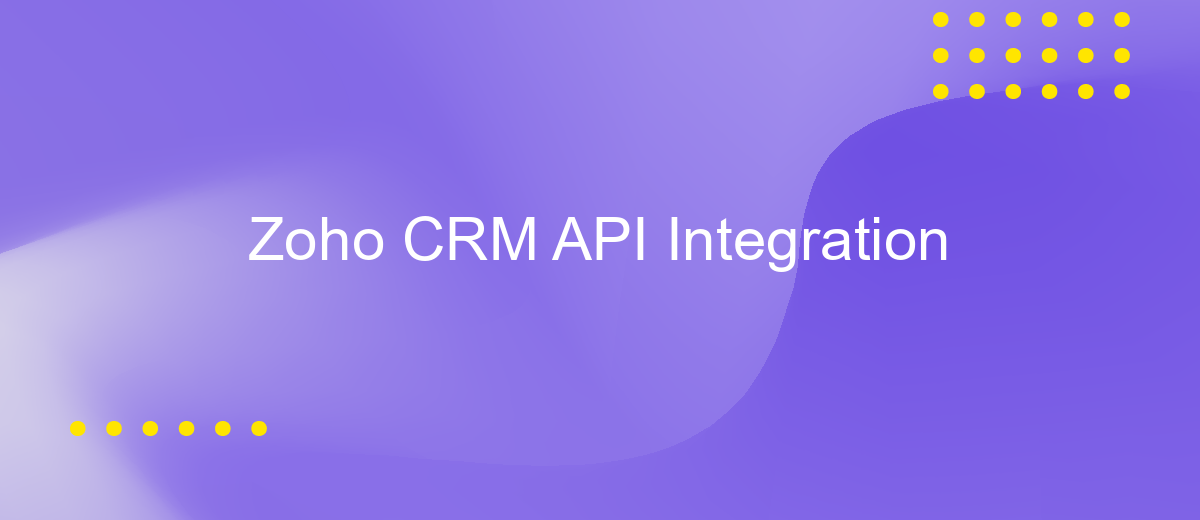Zoho CRM API Integration
In today's fast-paced business environment, efficient customer relationship management is crucial for success. Zoho CRM, a leading CRM platform, offers robust tools to streamline sales, marketing, and support processes. Integrating Zoho CRM with other applications via its API can significantly enhance functionality and data flow. This article explores the benefits and steps involved in Zoho CRM API integration, enabling businesses to optimize their operations and improve customer engagement.
Introduction to Zoho CRM and its API
Zoho CRM is a comprehensive customer relationship management platform designed to streamline business processes and enhance customer interactions. It offers a wide range of features, including sales automation, analytics, and marketing tools, making it an ideal solution for businesses of all sizes. Zoho CRM helps organizations manage their customer data effectively, improve communication, and increase sales efficiency.
- Seamless integration with various third-party applications
- Customizable modules to suit specific business needs
- Advanced analytics for data-driven decision-making
- Automated workflows to enhance productivity
- Robust security features to protect sensitive data
The Zoho CRM API is a powerful tool that allows developers to integrate Zoho CRM functionalities into their own applications. This API provides access to a wide range of features, enabling businesses to customize their CRM experience and automate tasks. With the Zoho CRM API, developers can create custom solutions that cater to specific business requirements, ensuring a seamless and efficient workflow. Whether you are looking to build a new application or enhance an existing one, the Zoho CRM API offers the flexibility and scalability needed to achieve your goals.
Understanding Zoho CRM API Capabilities and Use Cases

Zoho CRM API offers a versatile set of capabilities that empower businesses to seamlessly integrate their CRM system with various third-party applications and services. The API provides access to a wide range of CRM functionalities, enabling developers to automate tasks, manage customer data, and enhance overall productivity. With features such as data synchronization, custom module creation, and real-time updates, Zoho CRM API facilitates a tailored customer relationship management experience. This integration capability ensures that businesses can maintain a unified system, reducing manual data entry and improving accuracy.
A common use case for Zoho CRM API is to connect with marketing automation tools, allowing for seamless lead management and nurturing processes. Additionally, businesses can integrate with accounting software to streamline financial operations. For those seeking a no-code solution to simplify these integrations, platforms like ApiX-Drive offer user-friendly interfaces to connect Zoho CRM with other applications effortlessly. By leveraging such tools, companies can optimize their workflows and focus on strategic growth initiatives, ensuring that their CRM system evolves with their business needs.
Setting up and Authenticating with the Zoho CRM API

Integrating with the Zoho CRM API begins with setting up your developer account on the Zoho Developer Console. This platform provides the necessary tools and resources to manage your API projects efficiently. Once registered, you need to create a new client application, which will generate a Client ID and Client Secret. These credentials are crucial for authenticating your API requests.
- Log in to the Zoho Developer Console and create a new client application.
- Obtain your Client ID and Client Secret from the application details.
- Configure the redirect URI to handle authentication responses.
- Use the OAuth 2.0 protocol to generate an access token.
- Store the access token securely for subsequent API requests.
With the access token in hand, you can now authenticate your API requests to Zoho CRM. Ensure that your access token is valid for the required scopes and is refreshed regularly to maintain uninterrupted access. This setup not only secures your integration but also allows seamless interaction with Zoho CRM's extensive features.
Implementing Common Zoho CRM API Integrations (e.g., with other business applications)

Integrating Zoho CRM with other business applications can significantly enhance organizational efficiency by streamlining workflows and improving data accessibility. The Zoho CRM API provides a robust platform for connecting various applications, allowing for seamless data exchange and automation of repetitive tasks.
To implement Zoho CRM API integrations, it's essential to understand the specific business needs and the applications involved. Whether you're connecting with marketing tools, customer support platforms, or financial systems, the integration process involves configuring API endpoints and ensuring data synchronization between systems.
- Identify and authenticate the applications for integration.
- Configure API endpoints and data mapping requirements.
- Test the integration to ensure data accuracy and functionality.
- Monitor and maintain the integration for ongoing performance.
Successful implementation of Zoho CRM API integrations can lead to improved data consistency and a more cohesive business environment. By automating data flow between systems, businesses can reduce manual data entry, minimize errors, and enable teams to focus on more strategic tasks, ultimately driving growth and efficiency.


Best Practices and Troubleshooting for Zoho CRM API Integration
When integrating Zoho CRM API, it's crucial to follow best practices to ensure a seamless experience. First, always authenticate API requests securely using OAuth 2.0 to protect sensitive data. Limit API calls to avoid exceeding rate limits and optimize performance. Use versioning in your API requests to maintain compatibility with future updates. Thoroughly document your integration process, including error handling and response codes, to facilitate troubleshooting. Regularly update your application to align with Zoho's API changes and enhancements.
Troubleshooting Zoho CRM API integration can be streamlined by leveraging tools like ApiX-Drive, which simplifies the setup process through a user-friendly interface. If issues arise, check for common errors like incorrect authentication, invalid endpoint URLs, or exceeding API limits. Utilize Zoho's API documentation and community forums for support and insights. Implement logging to track API interactions and identify patterns or recurring issues. By adhering to these practices, you can enhance the reliability and efficiency of your Zoho CRM API integration.
FAQ
What is Zoho CRM API Integration?
How do I authenticate with Zoho CRM API?
What are some common use cases for Zoho CRM API Integration?
How can I automate data integration between Zoho CRM and other applications?
What should I do if I encounter errors while using Zoho CRM API?
Time is the most valuable resource for business today. Almost half of it is wasted on routine tasks. Your employees are constantly forced to perform monotonous tasks that are difficult to classify as important and specialized. You can leave everything as it is by hiring additional employees, or you can automate most of the business processes using the ApiX-Drive online connector to get rid of unnecessary time and money expenses once and for all. The choice is yours!

